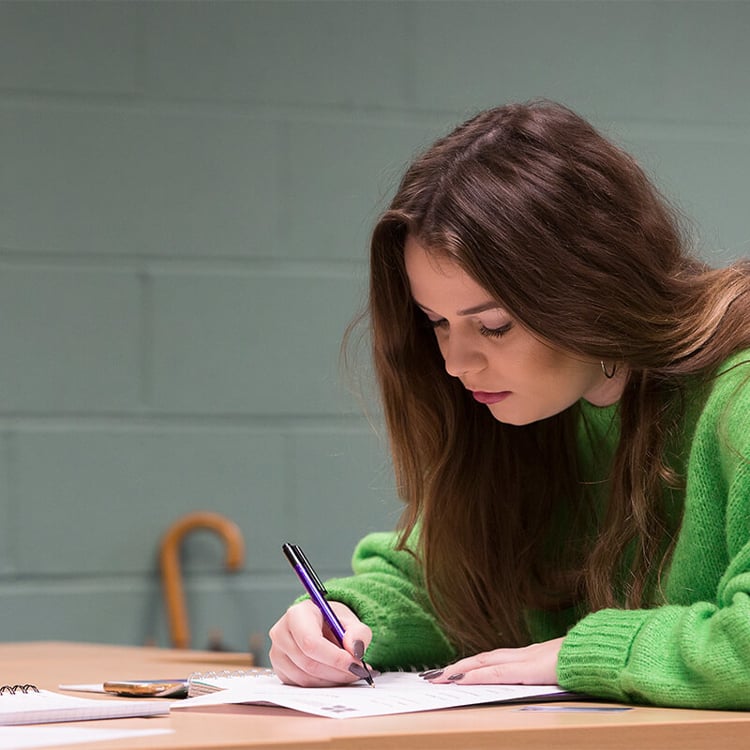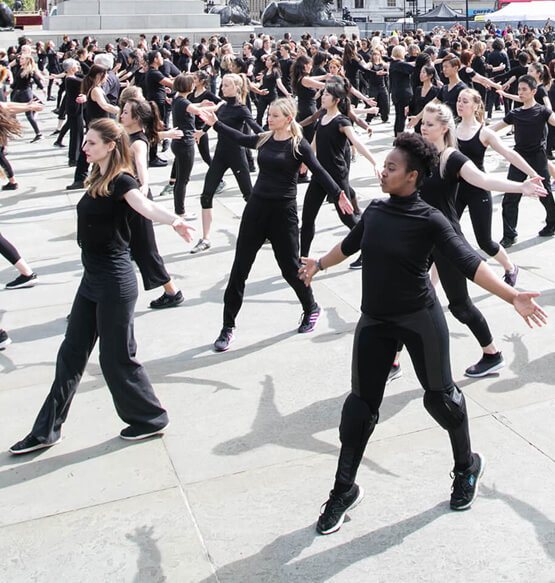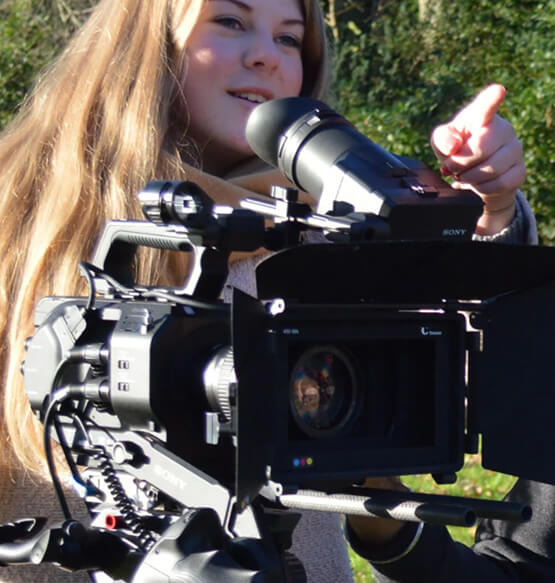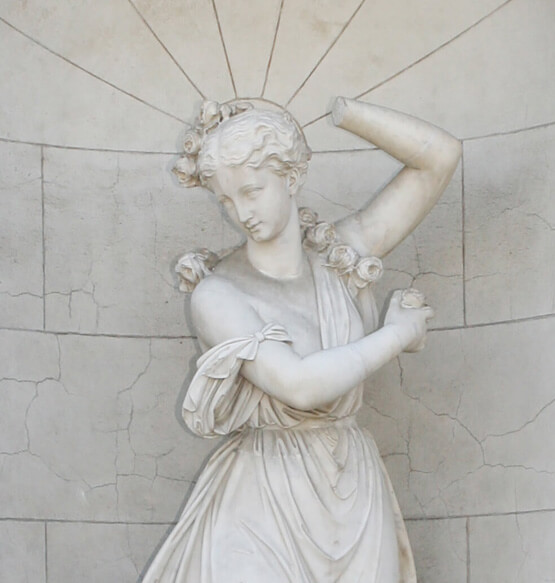Duration:
1 year (full-time)
2 years (part-time)
Please add an additional year if undertaking the Professional Experience Year: integrated 2-year masters
Number of credits:
MA: 180
PGDip: 120
Start date(s):
September 2026
Join one of the most innovative MA Creative Writing programmes in the country and delve into the world of contemporary creative writing.
Explore horror and dark fiction, fantasy worlds and dystopian futures, crime writing and erotic stories, and master the skills to produce compelling, publishable work.
Our number one aim is to teach you how to produce your own creative writing manuscript that is of a publishable standard. You'll be working alongside our team of established, successful writers to develop your own portfolio of creative writing and critical reflection. Successful writers who have graduated from our programme include Holly Pester, Rachel Knightley, and Nikki Dudley.
Did you know?
Roehampton's in-house Fincham Press provides opportunities for you to see your writing published, and gain hands-on experience of the publishing process.
Modules
Module overview:
This module sets out to explore theoretical and research-based issues faced by creative writers. Central to our discussions about reading, writing, and research will be the exploration of literary form and context: how have established writers engaged with the various literary and extra-literary discourses that define, modify and inform the writing process? For example, we may consider such topics as modernism and postmodernism, autobiography and life-writing, ethnicity and writing, gender politics, and ecological writing. Writers to be studied will range from modernist pioneers such as Virginia Woolf and Marcel Proust to more contemporary examples such as Mohsin Hamid and Theresa Hak Kyung Cha. The module will also introduce you to the forms of the hybrid essay, the personal essay, and the lyric essay, opening up the range of possibilities these kinds of writing can offer. We will explore the interests and subjects you are drawn to, and ways in which to bring these to the foreground in your writing.
Teaching and learning:
You’ll learn through a weekly lecture, a seminar/workshop where you can share in-progress writing assignments and discuss set readings, guided writing sessions, and asynchronous participation in online forum assignments, commenting on each other’s writing and reflections.
Assessment:
This module will be assessed using a hybrid creative/critical essay and a reading log.
Module overview:
Genre novels, short stories and anthologies have moved from the small corners of the reading and publishing consciousness they once occupied to take central roles in fiction, adaptation and mainstream culture. This appetite for such writing is evidenced by the growth in the wider literary field of writing particularly within the realms of psychological or gothic horror, thriller and domestic noir, fantasy and weird fiction. The subject matter of our MA dissertations is also becoming more weighted towards genre fiction, particularly within horror and dark fantasy, every year. In spite of the enormous popularity of genre fiction, very few MAs in the country offer any specialisation in these areas. We are excited to welcome writers who are keen to work on an MA programme that pays deserved and increased attention to these forms.
Teaching and learning:
You’ll learn through a weekly lecture, a seminar/workshop where you can share in-progress writing assignments and discuss set readings, guided writing sessions, and asynchronous participation in online forum assignments, commenting on each other’s writing and reflections.
Assessment:
This module will be assessed using a portfolio of smaller formative writing assignments and a critical reflection.
Module overview:
It's an exciting time for writers of short fiction. A very strong case can be made for short form fiction being the most creative and accessible form of all 21st century writing. Ranging from single-sentence short fiction through to longer-form short stories, we are going to be reading, writing, and discussing a lot over the course of this module.
This module examines the practice and theory of writing short stories. As part of the 'digital revolution' in publishing, literary journals and magazines have proliferated on the internet (and also in print), providing a wider demographic of writers with unprecedented publishing opportunities. Often the preferred format within these publishing contexts, the contemporary short form has become one of the most significant vehicles for new prose writers working towards their first publications.
The module covers a wide range of approaches, from the classic narrative short story to innovative, genre and hybrid fictions, enabling students to develop their own practice and engagement with the form in relation to recent developments in creative writing, professional publishing and wider sociocultural and political contexts. Subjects covered include contemporary versus classic approaches to short fiction; narrative, characterisation and their interdependent relationship; how to make short stories relevant now; working with subjectivity and difference; concept-led, language-led and autobiographical modes of writing; and fiction and culture.
Teaching and learning:
You’ll learn through a weekly lecture, a seminar/workshop where you can share in-progress writing assignments and discuss set readings, guided writing sessions, and asynchronous participation in online forum assignments, commenting on each other’s writing and reflections.
Assessment:
This module will be assessed using a portfolio of smaller formative writing assignments and a critical reflection.
Module overview:
Dark and transgressive fiction no longer occupies a niche role in our culture. Novels which once occupied small corners of bookshops and publishing fairs now occupy central roles. This module will look at key texts pertaining to the study and practice of dark and transgressive Creative Writing, including knowledge and understanding of literary, analytical and theoretical frameworks as they pertain to these genres. Our readings will develop experiential knowledge of the practical skills and conceptual focus required for producing a body of work in a single or hybrid genre (e.g. a combination of dark and transgressive genres, or comedy and erotic genres. There are many possible combinations.)
Teaching and learning:
You’ll learn through a weekly lecture, a seminar/workshop where you can share in-progress writing assignments and discuss set readings, guided writing sessions, and asynchronous participation in online forum assignments, commenting on each other’s writing and reflections.
Assessment:
This module will be assessed using a portfolio of smaller formative writing assignments and a critical reflection.
Module overview:
This module examines the practice and theory of writing novels. While the internet provides increasing opportunities for novelists to self-publish, the traditional publishing industry, usually facilitated by agents, offers writers unparalleled quality-control and access to marketing. The module introduces you to professional practice and industry expectations, with specific reference to the production of long-form fiction.
The module covers a wide range of approaches, including the classic narrative structure, literary experimentation and genre fiction, enabling you to develop your own practice and engagement with the form in relation to recent developments in creative writing, professional publishing and wider sociocultural and political contexts. Subjects covered include the contemporary literary novel; narrative, characterisation and their interdependent relationship; how long-form fiction employs narrative technique; fiction and culture; and the novel as thesis. Further, the module builds further on the practice of workshopping, including workshop etiquette, providing and receiving feedback, group discussion, editing, redrafting and preparing a manuscript to a professional standard.
Teaching and learning:
You’ll learn through a weekly lecture, a seminar/workshop where you can share in-progress writing assignments and discuss set readings, guided writing sessions, and asynchronous participation in online forum assignments, commenting on each other’s writing and reflections.
Assessment:
This module will be assessed using a portfolio and a critical reflection.
Module overview:
The Creative Project is intended to enable you to plan and implement a thoughtful, carefully edited and well-organised literary project. As a mode of independent study, it gives you the opportunity and time to work on self-determined tasks, reflecting on quality control and time management as well as building an awareness of their particular writing strengths and skills. The project consists of a carefully planned and executed work of original creative writing in a single genre. It must be a complete, finished work (or extract of a longer work) that reflects your process of drafting and editing, and it should demonstrate such qualities as technical craft, an awareness of literary and theoretical issues, and an awareness of its literary context. You will receive comprehensive feedback and support from your tutor during the process of planning and completing the dissertation.
Teaching and learning:
The accompanying critical reflection is a substantive and specific reflection on how your creative writing has been affected by theoretical and literary contextual issues. It should use the creative writing component of the dissertation as its primary illustrative tool and give you an opportunity to reflect on writing, the creative choices and challenges faced, as well as insights gained.
You will be responsible for devising a creative project and submitting a proposal, agreeing a syllabus and timetable in negotiation with you supervisor. In addition, online resources and a Q&A session are provided to help you plan your project. Over the summer, there will also be monthly workshop/tutorial sessions scheduled, in order to support your learning and individual creative research and writing methods.
Assessment:
This module will be assessed using a creative portfolio and a critical reflection.
These are the current planned modules on this course and may be subject to change.
Professional Experience Year
This course also offers the option of a Professional Experience Year. This programme combines dynamic career modules with flexible placement opportunities. After completing your first year of study, you'll then spend the next academic year completing your Professional Experience training as part of your degree. This will give you real career experience. This unique opportunity offers you distinct paths to build your expertise.
Careers
At its heart, this programme will make you a better writer.
Alongside developing you as an author and creative writer, our graduates go on to careers in journalism, copywriting and arts management.
The programme prepares you for your future by developing confidence, observation, humility, mindfulness, curiosity, resourcefulness, research skills, individual and interpersonal skills, writing and reflective skills.

‘My lecturers really care about all of us succeeding in our chosen careers. They encourage me to push myself and experiment with my writing, which is also helping prepare me for a career in publishing’.
Samantha Jo Gale, MA Creative Writing
Learning and Assessment
How you'll learn
Our MA in Creative Writing develops creative innovation, curiosity, independent enquiry, contextual study, technical mastery, artistic maturity and professional preparation.
You’ll study and create through lectures, workshops, blended learning, guided writing time, a wide range of readings, and forum posts.
In our writers’ workshops, you’ll be encouraged to critically respond to each other's work, alongside a tutor who is there to steer, inform, and moderate discussion. You'll be guided on how to give and receive the most effective and compassionate comments, as our tutors are aware of the sensitive nature of sharing work, having experienced that excitement and/or anxiety themselves. A great deal of care and attention goes into ensuring that this side of the programme is welcoming and beneficial for all types of student writer.
You will always be treated as a unique creative individual. Small group and individual sessions ensure that you and your writing will be given the highest levels of support and attention.
The use of AI
Our Creative Writing programme stands out from many others in the way that we approach AI.
All creative writers will encounter AI as an increasingly pervasive influence in many areas of creative and critical practice. We encourage students to engage with all the debates around the use of AI, which affect our work as writers - whether we like it or not, whether we embrace it or choose to reject it.
How you’ll be assessed
Creative work is the core of most modules, with an accompanying reflective text.
Reflective work usually takes the form of a reflective essay and forum posts. You’ll keep your own reading log to complete and share critical and creative responses to weekly readings in class and on the forum, before summative submission.
Great care is given to the assessment of your creative work, and your tutor’s evaluation will be based on agreed principles and reference points. In assessing ‘creative’ writing assignments, the quality of that creativity will take the following criteria into consideration:
- Originality
- Imagination
- Ambition
- Maturity of style
- Use of language
- Technical mastery
- Awareness of context and genre
Each module builds in formative work to allow you to get a sense of your progress, and to enable the teaching team to feedback on your progression ahead of the essential summative assignments.
Open days
Get a real taste of our campus, community and what it’s like to study at Roehampton
Applying
UK postgraduate students apply through our direct application system.
Specific entry requirements
A second-class honours degree is normally required but non-standard applications are also welcome, and applicants are invited to submit a portfolio of writing, consisting of approximately 2000 words of prose (Fiction, Creative Nonfiction, Journalism) or 15 pages of poetry. Please upload your portfolio of writing on the online application form, which can be found by clicking the 'apply for the course' button.
General entry requirements
September 2025 entry tuition fees (UK)
| Level of study | Full-time | Part-time* |
| MA | £9,250 Professional Experience Year: £2,500 |
£4,625 |
| PGDip | £6,170 | £3,085 |
*Year 1 fee
We offer a wide range of scholarships and bursaries. See our financial support pages for UK students.
We also provide other ways to support the cost of living, including on-campus car parking, hardship support and some of the most affordable student accommodation and catering in London. Find out more about how we can support you.
International postgraduate students apply through our direct application system.
Specific entry requirements
A second-class honours degree is normally required but non-standard applications are also welcome, and applicants are invited to submit a portfolio of writing, consisting of approximately 2000 words of prose (Fiction, Creative Nonfiction, Journalism) or 15 pages of poetry. Please upload your portfolio of writing on the online application form, which can be found by clicking the 'apply for the course' button.
General entry requirements
September 2025 entry tuition fees (international)
| Level of study | Full-time | Part-time* |
| MA | £18,250 Professional Experience Year: £2,500 |
£9,125 |
| PGDip | £12,170 | £6,085 |
*Year 1 fee
We offer a wide range of scholarships and bursaries. See our financial support pages for international students.
We also provide other ways to support the cost of living, including on-campus car parking, hardship support and some of the most affordable student accommodation and catering in London. Find out more about how we can support you.








